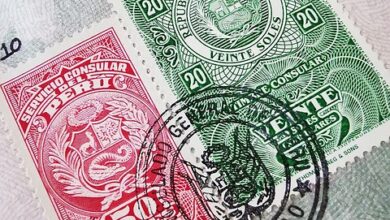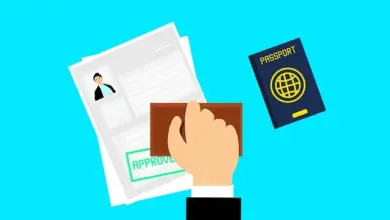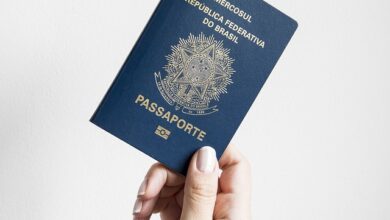How to Bring Your Spouse or Partner to Belgium

Bringing your spouse or partner to Belgium involves navigating a series of legal and administrative steps. Whether you’re relocating for work, study, or personal reasons, understanding the process is crucial to ensure a smooth transition. Below is a comprehensive guide on how to bring your spouse or partner to Belgium.
1. Determine Eligibility
Before initiating the process, confirm that you meet the eligibility criteria:
- Married Couples : If you are legally married, your spouse can apply for a residence permit based on family reunification.
- Unmarried Partners : Cohabiting partners (common-law spouses) may also qualify if they can prove a stable and durable relationship.
- Same-Sex Partners : Belgium recognizes same-sex marriages and registered partnerships, so these relationships are eligible for family reunification.
For unmarried couples, providing evidence of cohabitation (e.g., joint bank accounts, shared rental agreements, or affidavits from witnesses) is essential.
2. Ensure You Have Legal Residency in Belgium
To sponsor your spouse or partner, you must already be legally residing in Belgium. This could mean:
- Holding a valid residence permit as a worker, student, researcher, or EU citizen.
- Being a Belgian citizen.
- Having refugee or subsidiary protection status.
If you are not yet legally resident in Belgium, you’ll need to address this before proceeding.
3. Gather Required Documents
Both you and your spouse/partner will need to provide specific documents. These typically include:
For the Sponsor (You):
- Proof of legal residency in Belgium (residence permit, visa, etc.).
- Proof of sufficient income to support your family (employment contract, salary slips, bank statements).
- Proof of adequate housing (rental agreement or property ownership documents).
For the Applicant (Your Spouse/Partner):
- A valid passport.
- Birth certificate (translated into French, Dutch, or German if necessary).
- Marriage certificate (or proof of a durable relationship for unmarried partners).
- Medical certificate proving good health (issued by an approved doctor in their home country).
- Criminal record check from their country of origin.
Note: All foreign documents must be legalized or apostilled and translated into one of Belgium’s official languages (French, Dutch, or German) by a certified translator.
4. Apply for Family Reunification
The application process depends on whether your spouse/partner is an EU/EEA citizen or a non-EU national .
For EU/EEA Citizens
- EU citizens do not require a visa to enter Belgium but must register with the local municipality within three months of arrival.
- Provide proof of your relationship and sufficient resources to support yourselves.
For Non-EU Nationals
Non-EU nationals must follow these steps:
- Apply for a Long-Stay Visa (D Visa) : Submit the application at the Belgian embassy or consulate in their home country.
- Include all required documents mentioned above.
- Pay the applicable visa fee.
- Wait for Approval : Processing times vary but typically take 2–6 months.
- Travel to Belgium : Once the visa is granted, your spouse/partner can travel to Belgium.
- Register with the Municipality : Within eight days of arrival, visit the local municipality office to apply for a residence permit.
5. Attend the Medical Examination
Upon arrival in Belgium, non-EU nationals may need to undergo a medical examination to confirm they meet health requirements. The municipality will provide details about scheduling this appointment.
6. Obtain a Residence Permit
After registering with the municipality, your spouse/partner will receive a provisional residence permit (A-card). This allows them to stay in Belgium while their application is finalized. Once approved, they will be issued a definitive residence permit (B-card), valid for one year and renewable annually.
7. Additional Considerations
Language Requirements
Some municipalities require basic knowledge of the local language (French, Dutch, or German) for long-term residency. Check with your local municipality for specific rules.
Integration Contract
Non-EU nationals aged 18–65 must sign an integration contract , which includes commitments to learn the language and understand Belgian society. Failure to comply may affect future renewals.
Work Authorization
Once your spouse/partner has a residence permit, they are generally allowed to work in Belgium without additional permits.
8. Costs Involved
There are several fees associated with bringing your spouse or partner to Belgium:
- Long-stay visa application fee: Approximately €180–€300.
- Residence permit fee: Around €75–€200 per year.
- Translation and legalization costs: Vary depending on the country and service provider.
- Travel expenses: Flights and other relocation costs.
9. Tips for a Smooth Process
- Start early: The entire process can take several months, so plan ahead.
- Double-check document requirements: Missing or incorrect paperwork can delay applications.
- Consult the Belgian Immigration Office: For non-EU nationals, the Office of Foreigners provides detailed guidance.
- Seek professional assistance: If the process seems overwhelming, consider hiring an immigration lawyer or consultant.
10. Resources
Here are some helpful resources for further information:
- Belgian Government Website : https://www.belgium.be
- Immigration Office (Office des Étrangers/Alien Office) : https://dofi.ibz.be
- Local Municipality Websites : Search for your municipality’s site for registration details.



